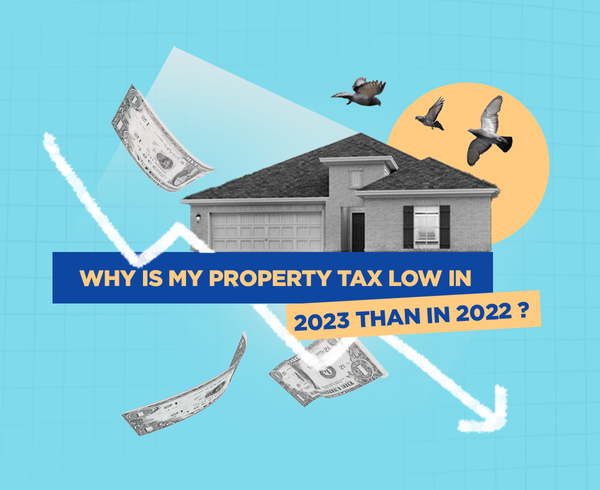Navigating the complex world of property taxes can initially seem like a challenge, but once you get a hang of it, property taxes are quite simple. For starters, you should note that your property tax bill arrives every year around October. This property tax bill tells you the amount that you need to pay your local tax collector each year.
While the Texas state government doesn’t impose any personal income tax, they rely on local county governments to assess and collect property tax from residents. This means that the property tax you pay will depend on the county where you live. If you’re confused about the amount of property tax you have to pay, you can always check in with reliable real estate companies that specialize in Texas real estate.
Sometimes you may notice that your property tax bill is a bit different—you’re not paying as much as you were the previous year. So what changed? Why do you suddenly have to pay a low property tax? The good news is that there’s nothing to worry about. There are several reasons why your property tax may lower from one year to the next.
A Change In The Assessed Value
Texas laws require assessors to evaluate properties at least once every three years. This evaluation determines the assessed value of a property based on factors like location or work completed on the property. Depending on this, the assessor is able to assign a specific value to your property, which is then used to calculate the property tax. If there’s a change in the assessed value of your property, you will have to pay property taxes according to the new assessment. This may be one reason why your property tax amount changes.
Exemptions are Calculated
There are many exemptions available for property owners in Texas. As a homeowner in Texas, you may apply for more than one exemption, in some cases. For instead, a homestead exemption of an additional $10,000 is available for property owners who are above 65 years of age or disabled. In order to receive the exemption, you will need to file for it with your local government; once it’s applied, the amount of property tax you are required to pay will reflect that exemption.
As per the latest constitutional amendment, the exemption break has increased from $40,000 to $100,000, contributing to additional savings.
Change in Local Policies
Your local government is in charge of assessing your property and sharing the property tax bill with you. If there is any change in these local policies, it may be reflected on your final property tax bill. Make sure you stay up to date on all local policies by attending workshops, keeping up with announcements from your local taxing authorities and consulting tax professionals like Bezit.
These are some of the reasons why you may have received a lower property tax bill in 2023 in comparison to the previous year. While that certainly sounds like good news, when you’re unsure about your property taxes, you should consult with your local authorities as soon as possible. While a lowered property tax is always a welcome change, make sure you understand the reasons for this reduced property tax. Unpaid taxes can lead to a host of unpleasant experiences, such as a tax lien being placed on your property, or even the property being seized.
If you feel that you’re not being fairly taxed for a property you own in Texas, you can also file a protest to ensure that you get a correct assessment on your property. In all property tax-related matters, it’s best to have a professional on your side who knows the laws and can guide you, like the experienced team Bezit.

